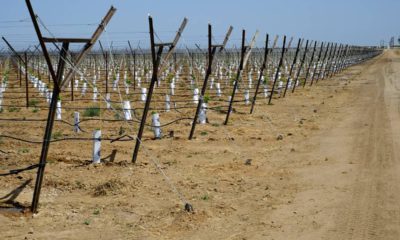Published
6 years agoon

California’s Department of Motor Vehicles has long been a poster child for managerial shortcomings among the state’s many agencies.
It is, however, not the only example of how state programs fail to complete their designated missions. Another is the ambitious effort to reduce the nearly 80 million tons of trash that Californians generate each year, as a new series of articles in CalMatters is revealing.

Dozens, perhaps even hundreds, of additional laws were passed in the following years, as this year-by-year compilation shows. Most recently, the Legislature banned single-use plastic bags that grocers and other merchants had been issuing to their customers.
With the 2020 deadline looming, however, the reduction goal may be getting further away, as CalMatters environmental writer Rachel Becker details in the first article of her series on the issue.
In part, it’s because global markets for California’s recyclables has been shrinking. Buyers such as China have become less willing to accept materials by limiting what they will buy and demanding higher quality – a situation that stems, at least in part, from the Trump administration’s broader trade conflict with China.
China’s 2017 restrictions on imported recyclables “started sending recyclers and recycling markets into a tailspin here,” Kate O’Neill, an associate professor in environmental science at the University of California-Berkeley and an expert on the international waste trade, told Becker. Since then, countries including Thailand, Vietnam, and India have announced plans to ban scrap plastic.
CalRecycle, which has a $1.5 billion annual budget, has been fairly successful in persuading Californians of the need to separate their recyclable waste from ordinary garbage headed for the dump, but it and local governments have not done a very good job of educating consumers about what is acceptable, which has exacerbated the global market problem.
The shortcomings in California’s waste management program have not gone unnoticed. Those involved at the working level, particularly recyclers, have complained repeatedly about a lack of financial incentives.


California Pins Vaccine Hopes on Biden Administration


Walters: After COVID-19, Drought Threat Still Looms


Fierce California Winds Fan Fires, Topple Trees and Trucks


Monarch Butterfly Population Moves Closer to Extinction


Newsom Sets New Tone for California, White House Partnership


California Guard Pleads Guilty to Lies in Inmate’s Death




